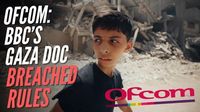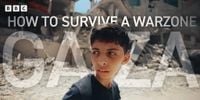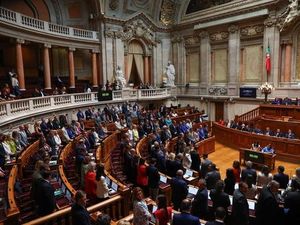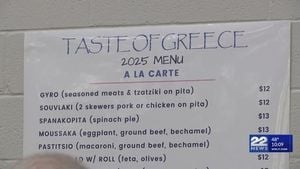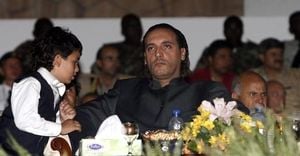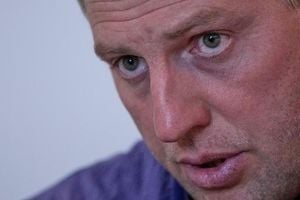The BBC, the United Kingdom’s flagship public broadcaster, has found itself at the center of a major controversy after media regulator Ofcom ruled that it committed a "serious breach" of broadcasting rules. On October 17, 2025, Ofcom concluded that the BBC documentary Gaza: How to Survive a Warzone was "materially misleading" because it failed to disclose that its narrator was the son of a senior Hamas official. This omission, the watchdog said, deprived viewers of critical context and risked eroding the trust that audiences place in the BBC’s factual programming—especially on such a highly charged topic as the Israel-Gaza conflict.
The documentary, produced by independent company Hoyo Films and broadcast by the BBC, centered on the experiences of Abdullah Eliyazour, a 13-year-old living in Gaza. What viewers were not told, however, was that Abdullah’s father, Dr. Ayman Al-Yazouri, serves as the deputy minister of agriculture in the Hamas-run administration. Hamas is proscribed as a terrorist organization by the UK, Israel, and several other countries. The programme’s failure to disclose this familial connection, Ofcom stated, was not just a technical error—it was a material lapse that could have significantly influenced how audiences assessed both the narrator and the information presented.
According to Ofcom’s official statement, "Our investigation found that the programme's failure to disclose that the narrator's father held a position in the Hamas-run administration was materially misleading. It meant that the audience did not have critical information which may have been highly relevant to their assessment of the narrator and the information he provided." The regulator emphasized that misleading the audience is "among the most serious" breaches a broadcaster can commit, particularly for a public service institution like the BBC. Ofcom further noted, "This failing had the potential to erode the significantly high levels of trust that audiences would have placed in a BBC factual programme about the Israel-Gaza war."
The fallout was swift and significant. In February 2025, after the family connection became public knowledge—helped along by investigative journalist David Collier and a letter from public figures including actress Tracy-Ann Oberman—the BBC pulled the documentary from its iPlayer streaming service. The broadcaster then commissioned an internal review, led by Peter Johnston, its director of editorial complaints and reviews. This review, published in July, found that the programme had indeed breached the corporation’s editorial guidelines on accuracy. The BBC spent £400,000 of licence fee payers’ money on the documentary, which critics accused of serving as "propaganda" for Hamas. Collier, in particular, was blunt in his assessment: "How did the BBC let a son of a Hamas minister walk around looking for sympathy and demonising Israel in a documentary?"
Johnston’s internal review revealed that although three members of the Hoyo Films production team knew about the narrator’s family ties, no one at the BBC was aware of the connection prior to broadcast. The review criticized the BBC’s editorial team for not being "sufficiently proactive" in its checks and for a "lack of critical oversight of unanswered or partially answered questions" ahead of the documentary’s release. Despite this, the review found no evidence "to support the suggestion that the narrator's father or family influenced the content of the programme in any way." Hoyo Films, for its part, apologized for what it called a "mistake" and said it was pleased the review found "no evidence of inappropriate influence on the content of the documentary from any third party."
Ofcom, however, was clear that ultimate responsibility rested with the BBC. The regulator’s report stated, "We considered the BBC's failure to carry out rigorous compliance checks and provide adequate editorial oversight of a documentary detailing the experiences of Palestinian people living through a highly contentious conflict resulted in a serious omission, which had the clear potential to mislead viewers." The watchdog noted that the BBC held editorial responsibility for the programme as broadcast, regardless of the role played by the independent production company.
In response to the ruling, the BBC accepted Ofcom’s decision "in full." A spokesperson for the broadcaster said, "The Ofcom ruling is in line with the findings of Peter Johnston’s review, that there was a significant failing in the documentary in relation to the BBC’s Editorial Guidelines on accuracy, which reflects Rule 2.2 of Ofcom’s Broadcasting Code. We have apologised for this and we accept Ofcom’s decision in full. We will comply with the sanction as soon as the date and wording are finalised." BBC Director-General Tim Davie echoed this apology, stating, "Peter Johnston’s report identifies a significant failing in relation to accuracy in this documentary. I thank him for his thorough work and I am sorry for this failing. We will now take action on two fronts – fair, clear and appropriate actions to ensure proper accountability and the immediate implementation of steps to prevent such errors being repeated."
Ofcom’s sanction requires the BBC to broadcast a prime-time statement of its findings on BBC2 at 9:00 p.m., with the date yet to be confirmed. The BBC Board also weighed in, underscoring the importance of trust and transparency in its journalism: "Nothing is more important than trust and transparency in our journalism. We welcome the actions the Executive are taking to avoid this failing being repeated in the future."
The controversy also highlighted ongoing debates within the BBC about how to cover complex and contested conflicts. BBC Head of News Deborah Turness, in a staff meeting, sought to clarify that Abdullah’s father was a member of the Hamas-run government, not its military wing. She explained, "I think it’s really important that we are clear that Abdullah’s father was a Deputy Agriculture Minister, and therefore was a member of the Hamas-run Government. Which is different to being part of the military wing of Hamas." The UK government, however, does not officially distinguish between the political and military wings of Hamas, considering both as part of the proscribed organization.
The entire episode has underscored the immense scrutiny faced by the BBC as a publicly funded broadcaster, especially when reporting on the Middle East. The failure to disclose the narrator’s family background in Gaza: How to Survive a Warzone has not only led to regulatory sanctions and public apologies but also prompted a renewed focus on editorial oversight and transparency. As the BBC prepares to air Ofcom’s findings, questions linger about how it will rebuild trust with audiences and ensure such lapses do not happen again.
For many, the expectation remains clear: when it comes to reporting on issues as sensitive as the Israel-Gaza conflict, nothing less than full transparency will do.
